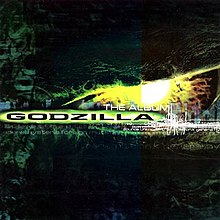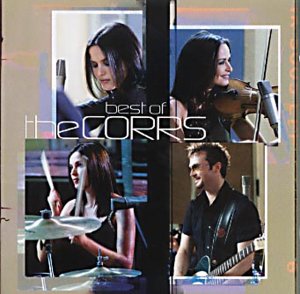
Best of The Corrs is a compilation album by the Irish pop rock band the Corrs, released in Ireland on 19 October 2001. The album consisted of the band's best-selling singles since their first chart appearance in 1995 with "Runaway", up to the Robert John "Mutt" Lange remix of their 2001 single "All the Love in the World", which charted at number twenty-four on the US Adult Contemporary chart. The album also featured the new single "Would You Be Happier?", as well as a new version of the Talk on Corners outtake, "Make You Mine". By the end of 2001, the album had sold over 2.4 million copies worldwide. By 2017, the album has sold 5 million copies.

Aquarium is the debut studio album by Danish band Aqua, released on 26 March 1997. The album is best known for including the globally successful single "Barbie Girl", which went on to become a widely recognizable hit around the world, as well as the popular track “Lollipop (Candyman)”. The album also featured the songs "Doctor Jones" and "Turn Back Time". In early 1997, the release of Aquarium was initially preceded by the singles "Roses Are Red" and "My Oh My", which was released a second time in 1998.

"Tears in Heaven" is a song by English guitarist, singer, and songwriter Eric Clapton and Will Jennings, written about the death of Clapton's four-year-old son, Conor. It appeared on the 1991 Rush film soundtrack. In January 1992, Clapton performed the song in front of an audience at Bray Studios, Berkshire, England for MTV Unplugged, with the recording appearing on his Unplugged album.

Music from the Motion Picture Pulp Fiction is the soundtrack to Quentin Tarantino's 1994 film Pulp Fiction, released on September 27, 1994, by MCA Records. No traditional film score was commissioned for Pulp Fiction. The film contains a mix of American rock and roll, surf music, pop and soul. The soundtrack is equally untraditional, consisting of nine songs from the film, four tracks of dialogue snippets followed by a song, and three tracks of dialogue alone. Seven songs featured in the film were not included in the original 41-minute soundtrack.

American singer, actress, producer and entertainer Whitney Houston, who is known as “The Voice”, released seven studio albums, eight compilations, three soundtrack albums, five box sets, six extended plays, and 57 singles. She has sold over 220 million records worldwide, becoming one of the best-selling music artists in history. According to the Recording Industry Association of America (RIAA), Houston is the best-selling female R&B artist of the 20th century, and has sold 100 million certified records in the United States. She is also the fourth best-selling female album artist in the US with 61 million certified album sales. In addition, until the launch of the RIAA's digital certification program in 2004, she had sold 16.5 million physical singles—more than any other female solo artist in history. According to the Official Charts Company in October 2012, Houston is the fourth-biggest-selling female singles artists of all-time list with a sales total of 8.5 million singles in that country.

No Way Out is the debut studio album by American rapper Puff Daddy & The Family. It was released on July 22, 1997 by Arista Records and Puff Daddy's Bad Boy Entertainment. The album's crediting of the Family references the guest appearances from his label-mates at Bad Boy Records.

The Hits – Chapter One, also known as Greatest Hits – Chapter One internationally, is the first greatest hits album released by American boy band, the Backstreet Boys. The album features 15 songs by the group, as well as a new song, "Drowning". "Drowning" was the album's only single, peaking at number four on the UK Singles Chart and charting in the top 10 in several countries.

Titanic: Music from the Motion Picture is the soundtrack to the film of the same name composed, orchestrated, and conducted by James Horner. The soundtrack was released by Sony Classical/Sony Music Soundtrax on November 18, 1997.

Japanese singer Ayumi Hamasaki has released eighteen studio albums, five compilation albums, twenty-six remix albums, four live albums and numerous singles and promotional singles. She debuted in 1995 under Nippon Columbia with the stage name Ayumi, releasing an extended play Nothing from Nothing, which was a collaboration with Dohzi-T and DJ Bass. Three years later, Hamasaki debuted again as a singer under Avex Trax with the single "Poker Face" (1998). Her first album A Song for ×× (1999) debuted at number one on Oricon's albums chart, and sold over 1.4 million copies.

Forever is the second studio album of American hip hop recording artist Puff Daddy, released on August 24, 1999 by Bad Boy Records and Arista Records. The album debuted at number two on the Billboard 200, received platinum certification by the Recording Industry Association of America (RIAA), and sold 205,343 units in its first week. Despite this, Forever trailed the success of his previous album No Way Out (1997), and was met with mixed to unfavorable critical response.
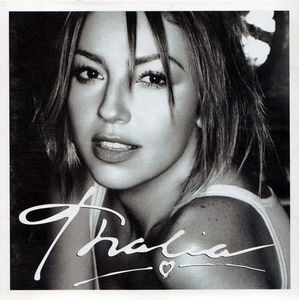
Thalía is the ninth studio album and third eponymous album by Mexican recording artist Thalía, released on July 8, 2003, by Virgin Records and EMI Latin. It is her first English-language album, and shares a title with Thalía's 1990 and 2002 Spanish-language albums. The album had a moderate success selling 750,000 in three months of release.
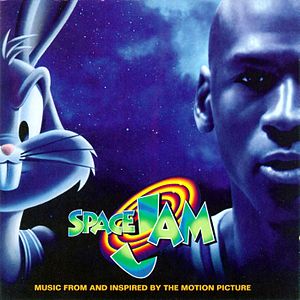
Space Jam: Music from and Inspired by the Motion Picture is the original soundtrack album of the 1996 film starring Michael Jordan and the Looney Tunes cast. An album featuring the film's score by James Newton Howard was also released. The soundtrack was released by Warner Sunset and Atlantic Records on October 29, 1996. "I Believe I Can Fly" by R. Kelly was first released on the soundtrack.
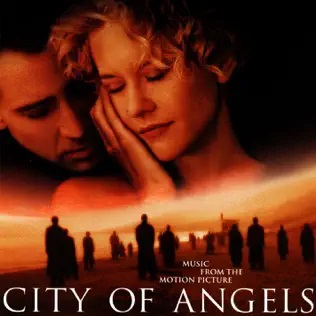
City of Angels: Music from the Motion Picture is the soundtrack album for the film City of Angels, released by Warner Bros. Records on March 31, 1998.
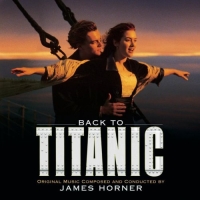
Back to Titanic is the second soundtrack album released for the film, which contains a mixture of previously unreleased recordings and newly recorded performances of some of the tracks heard in the film.

Release Some Tension is the third studio album by American R&B vocal group SWV. It was released by RCA Records on July 29, 1997. The album guest appearances by E-40, Puff Daddy, Missy Elliott, Timbaland, Foxy Brown, Lil' Cease, Lil' Kim, Snoop Dogg and Redman. The album was certified gold by the Recording Industry Association of America (RIAA) for shipments exceeding 500,000 copies in the United States.
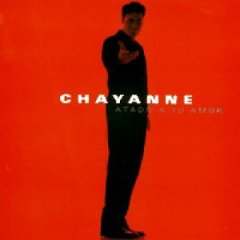
Atado a Tu Amor is the ninth studio album by recorded Puerto Rican-American recording artist Chayanne. This album was released by Sony Discos on September 29, 1998. It received a nomination for a Grammy Award for Best Latin Pop Album.

The discography of Japanese recording artist and actor Masaharu Fukuyama consists of ten studio albums, four compilation albums, three remix albums, twenty video albums, and numerous physical and promotional singles. Fukuyama debuted through BMG Japan by releasing the single "Tsuioku no Ame no Naka" (1990) and the album Dengon. The works failed to chart, however, in 1992 the single "Good Night", aided by the popularity it gained through use in the drama Ai wa Dō da, charted on the Oricon Singles Chart, peaking at number nine. In 1993, his album Calling became his first number one album on the Oricon Albums Chart; it has sold over 850,000 copies in Japan and has been certified two-times platinum by the Recording Industry Association of Japan (RIAJ).
The discography of Japanese pop duo Dreams Come True consists of 20 studio albums, 6 compilation albums, 17 video albums, and numerous singles. The band was formed in 1988 by Miwa Yoshida, Masato Nakamura, and Takahiro Nishikawa as Cha-Cha & Audrey's Project, which was later changed to Dreams Come True. The first single "Anata ni Aitakute" did not chart, but their eponymous debut album sold over a million copies in Japan and was certified Million by the Recording Industry Association of Japan (RIAJ). The follow-up albums also performed well on the charts, with the 1989 release Love Goes On... lingering on the Oricon Albums Chart for four years. The group's fifth studio album The Swinging Star (1992) was at one point, the best-selling album in Japan, shifting over 3.7 million copies in the country.

The albums discography of American singer Janet Jackson consists of eleven studio albums, four compilation albums, and two remix albums. When she was fifteen, her father arranged a contract for her with A&M Records. Her debut album, Janet Jackson (1982), peaked at number 64 on the Billboard 200 chart and sold 250,000 copies in the United States. Her next album, Dream Street (1984), peaked at number 147 on the Billboard 200, a weaker effort than her previous album. Her third album, Control (1986), became known as her breakthrough album, topping the Billboard 200 and sold over 10 million copies worldwide. Her fourth album, Janet Jackson's Rhythm Nation 1814 (1989), topped the Billboard 200 for four consecutive weeks and sold three million copies within the first four months of its release. The album went on to produce seven consecutive top 5 hits, four of them reaching the top spot on the Billboard Hot 100 in three separate calendar years, a record yet to be broken. The album was certified 6× Platinum by RIAA, and sold over 12 million copies worldwide.

Pretty Woman: Original Motion Picture Soundtrack is the soundtrack album to the 1990 film Pretty Woman, released on March 13, 1990, by EMI. The album features the song "Oh, Pretty Woman" by Roy Orbison, which inspired its title. Roxette's "It Must Have Been Love", originally released in December 1987, reached number one on the Billboard Hot 100 in June 1990. It also includes "King of Wishful Thinking" by Go West, "Show Me Your Soul" by Red Hot Chili Peppers, "No Explanation" by Peter Cetera, "Wild Women Do" by Natalie Cole and "Fallen" by Lauren Wood. The soundtrack has been certified triple platinum by the Recording Industry Association of America (RIAA).
